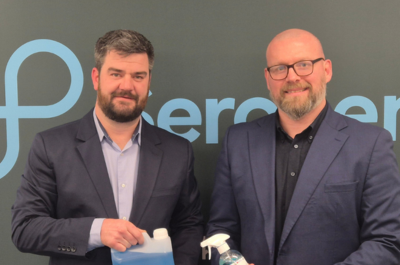- A community nurse has won an Employment Appeals Tribunal case which recognised that childcare disparity is still a cause of indirect sex discrimination.
- Childcare disparity is not as wide as it was 20 years ago, but it still exists.
- Employers must be careful not to disadvantage working mothers with imposed flexible working arrangements as it could lead to a successful indirect discrimination claim.
A recent Employment Appeals Tribunal (EAT) case has put a spotlight on childcare disparity. A community nurse was dismissed by her NHS Trust for refusing to change her two-day-a-week working pattern to occasionally include weekends. Her refusal was due to her caring responsibilities for her three children. An Employment Tribunal originally upheld the dismissal, but the EAT sided with the nurse. Níamh Kelly from The HR Dept Shropshire, Wrexham & Chester and Mid Wales picks out the key points for local businesses.
Níamh explains: “Childcare disparity is the term which describes the issue of women being more likely to be child carers than men. Because this can make it more difficult for women to work flexibly, it can lead to indirect sex discrimination if they are disadvantaged by a flexible working provision, criterion or practice (PCP).
“For about 20 years this has been established in case law. This means that courts should assume (without being presented with evidence) that inflexible working patterns do disadvantage women. In legal terms it is known as taking judicial notice. The original tribunal did not do this, but the EAT found that it should have done so.”
Níamh adds: “For completeness, the EAT also found that by only comparing the nurse’s situation to her immediate team (where all other male and female colleagues did comply with the flexible working) the Employment Tribunal had not considered a wide enough pool for comparison. The EAT asked that all community nurses subject to the new working pattern across the NHS Trust be included in the comparison.
“So what does this mean for local businesses?
“First, that although in the last 20 years there has been a movement towards more equitable childcare between the sexes, this is by no means complete. Childcare disparity still exists and judicial notice should still be taken in the courts. Therefore businesses should be careful not to disadvantage working mothers with flexible working demands.
“Second, detail from the case also suggests the threshold for an employee in proving a disadvantage is low. The NHS Trust unsuccessfully argued they had given good notice and that the nurse’s husband could help with childcare. The EAT’s ruling means that it does not have to be impossible to comply with a working requirement for a disadvantage to be established; simply that it has to impose difficulty on the employee.
“The pandemic has shaken up working patterns. Flexible working as a whole has become more prevalent and is likely to remain so. Be mindful that flexible working, or a specific pattern of flexible working, may not always be welcomed by employees and if forced through does carry legal risk. If in doubt, seek professional advice.”
For enquiries on this topic, please contact Níamh from The HR Dept, at












Latest News